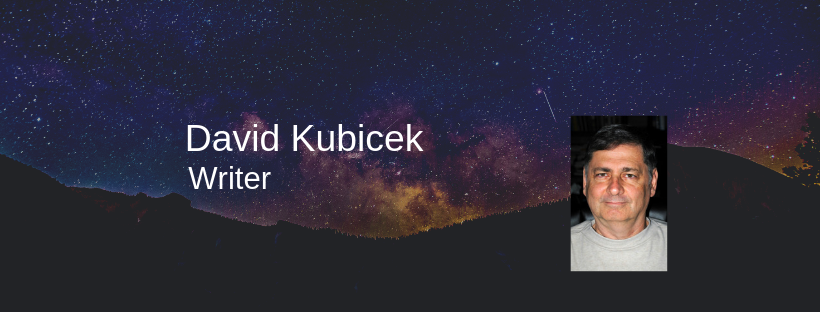by David Kubicek
Struggling writers take heart. Every now-famous writer collected rejection slips. As an incentive to struggling writers, I’ve put together this list of rejections of famous writers before they became famous.
I heard a speaker at a writing conference remark that many talented writers remain unpublished while the works of many marginal or bad writers find their way into print. Writers who keep sending their work out will eventually be published.
Among the rejection slips I’ve received, my favorite was from a science fiction anthology: a full-page drawing of a dragon dabbing at its eyes with a Kleenex as its tears flowed down. It was much funnier than these meager words can describe. I once showed it to a friend, also a science fiction writer, who didn’t find it quite as amusing. It’s a matter of attitude; I couldn’t do anything about the rejection, and it was a change of pace from the usual, uninspired form letter.
For any aspiring writers out there who have trouble staying motivated in the face of an expanding file of rejections, perhaps this list of the receptions of some famous authors and their work will help.
- Crash by J.G. Ballard: “The author of this book is beyond psychiatric help.”
- Dr. Seuss: “Too different from other juveniles on the market to warrant its selling.”
- Torrents of Spring by Ernest Hemingway: “It would be extremely rotten taste, to say nothing of being horribly cruel, should we want to publish this.”
- The San Francisco Examiner, rejecting Nobel Prize winner Rudyard Kipling: “I’m sorry, Mr. Kipling, but you just don’t know how to use the English language.”
- Lust for Life, Irving Stone‘s historical novel about Vincent Van Gogh: “A long, dull novel about an artist.” Sixteen publishers rejected the novel. When it finally saw print it sold more than 25 million copies.
- Jonathan Livingston Seagull by Richard Bach: “Jonathan Livingston Seagull will never make it as a paperback.” The novel eventually sold to Avon Books and racked up sales of more than 7.25 million copies.
- Tony Hillerman, best known for his Navajo Tribal Police mystery novels was advised by publishers to “Get rid of all that Indian stuff.”
- The War of the Worlds by H.G. Wells: “An endless nightmare. I do not believe it would ‘take’ … I think the verdict would be ‘Oh don’t read that horrid book.'”
- Although Emily Dickinson published only seven poems in her lifetime, an early rejection advised her: “(Your poems) are quite as remarkable for defects as for beauties and are generally devoid of true poetical qualities.”
- Animal Farm by George Orwell: “It is impossible to sell animal stories in the USA.”
- So many publishers rejected The Tale of Peter Rabbit that Beatrix Potter published it herself.
- Lord of the Flies by Nobel Prize winner William Golding: “An absurd and uninteresting fantasy which was rubbish and dull.”
- One publisher to another on John le Carre‘s The Spy Who Came in From the Cold: “You’re welcome to le Carre—he hasn’t got any future.”
- The Clan of the Cave Bear by Jean Auel: “We are very impressed with the depth and scope of your research and the quality of your prose. Nevertheless … we don’t think we could distribute enough copies to satisfy you or ourselves.”
- The Deer Park by Norman Mailer: “This will set publishing back 25 years.”
- Carrie by Stephen King: “We are not interested in science fiction which deals with negative utopias. They do not sell.”
- And my favorite:
- Sanctuary by Nobel Prize winner William Faulkner: “Good God, I can’t publish this!”
Fiction editing is a subjective process. There will always be editors who think your writing is crap, but there are also editors who will be enthusiastic about it. You just have to find them. And the only way to find them is to keep sending out your work.
For more information about David Kubicek’s books click here.
